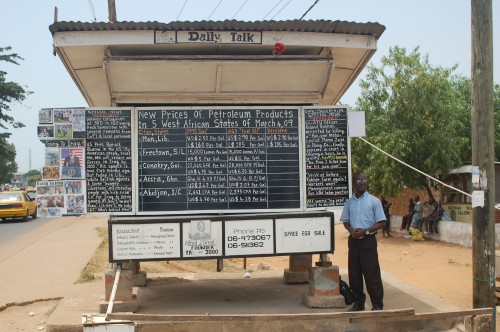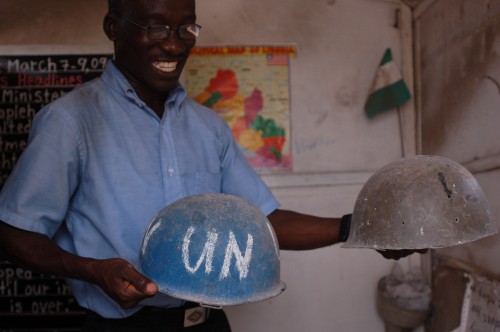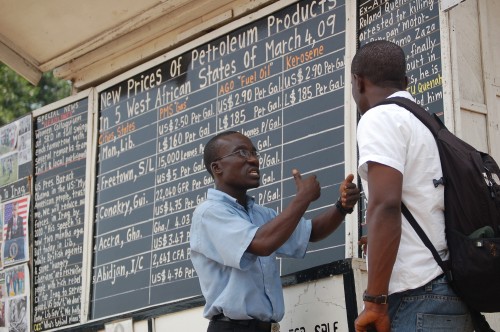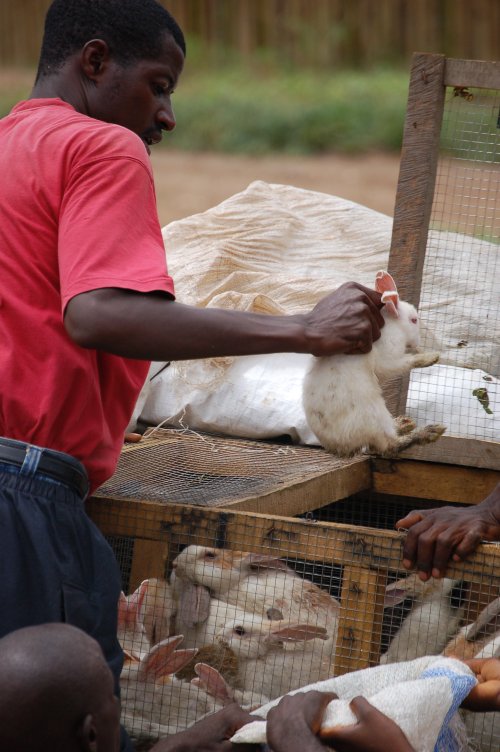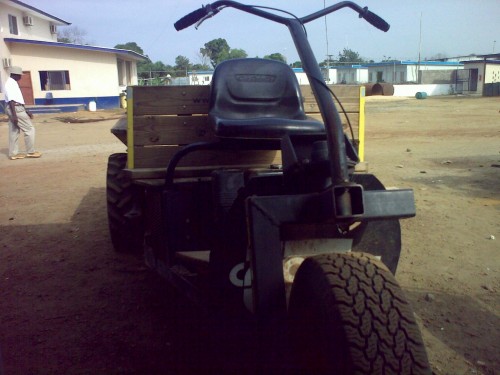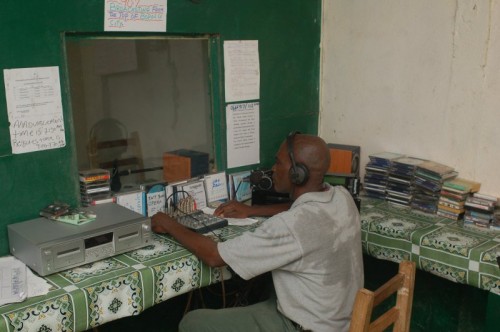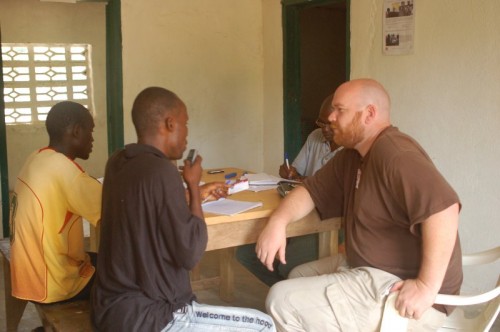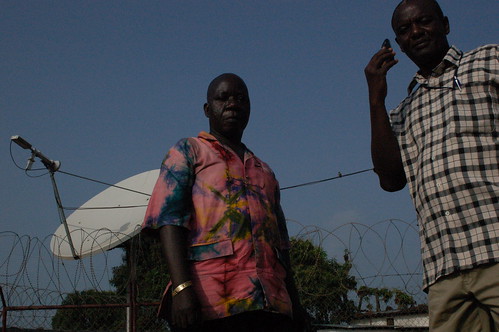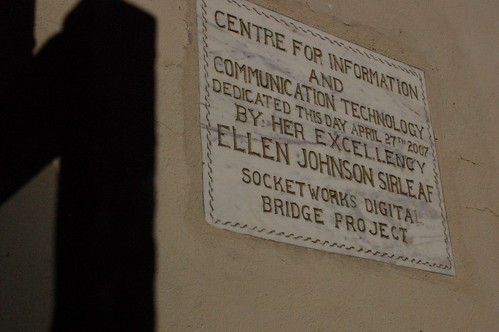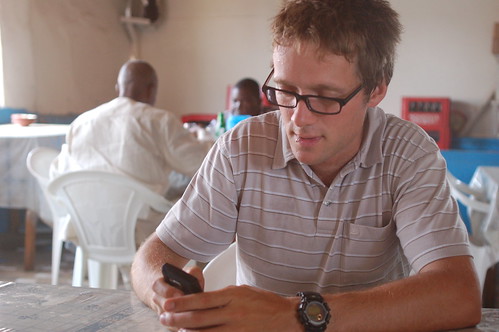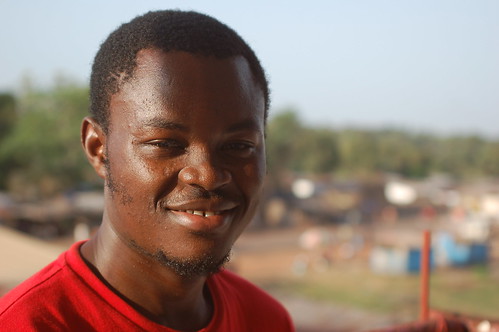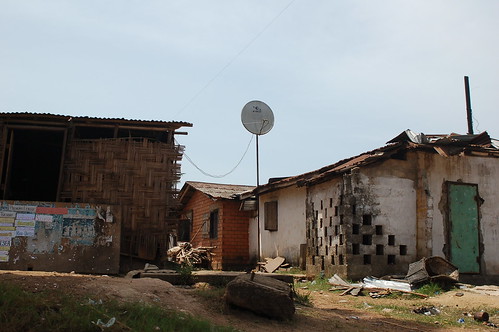Alfred Sirleaf is an analog blogger. He take runs the “Daily News”, a news hut by the side of a major road in the middle of Monrovia. He started it a number of years ago, stating that he wanted to get news into the hands of those who couldn’t afford newspapers, in the language that they could understand.
Alfred serves as a reminder to the rest of us, that simple is often better, just because it works. The lack of electricity never throws him off. The lack of funding means he’s creative in ways that he recruits people from around the city and country to report news to him. He uses his cell phone as the major point of connection between him and the 10,000 (he says) that read his blackboard daily.
Liberia’s Blackboard Blogger from WhiteAfrican on Vimeo.
Not all Liberians who read his news are literate, so he makes use of symbols. Whether it’s a UN or military helmet, a poster of a soccer player or a bottle of colored water to denote gas prices, he is determined to get the message out in any way that he can.
Advertising works here too. It’s $5 to be on the bottom level, $10 to be on the sideboard and $25 on the main section. He doesn’t get a lot of advertising, and but he manages to scrape by.
His plans for the future include decentralizing his work, this means opening up identical locations in other parts of Monrovia, and in a few of the larger cities around the country. I don’t put it past Alfred either, he’s a scrappy entrepreneur on a mission to bring information and news to ordinary Liberians. He’s succeeded thus far, and I would put my money on him growing it even further.
(Also, read the NYT piece on him from 3 years ago)
(note: title for this post stolen shamelessly from Rebecca’s Pocket)
